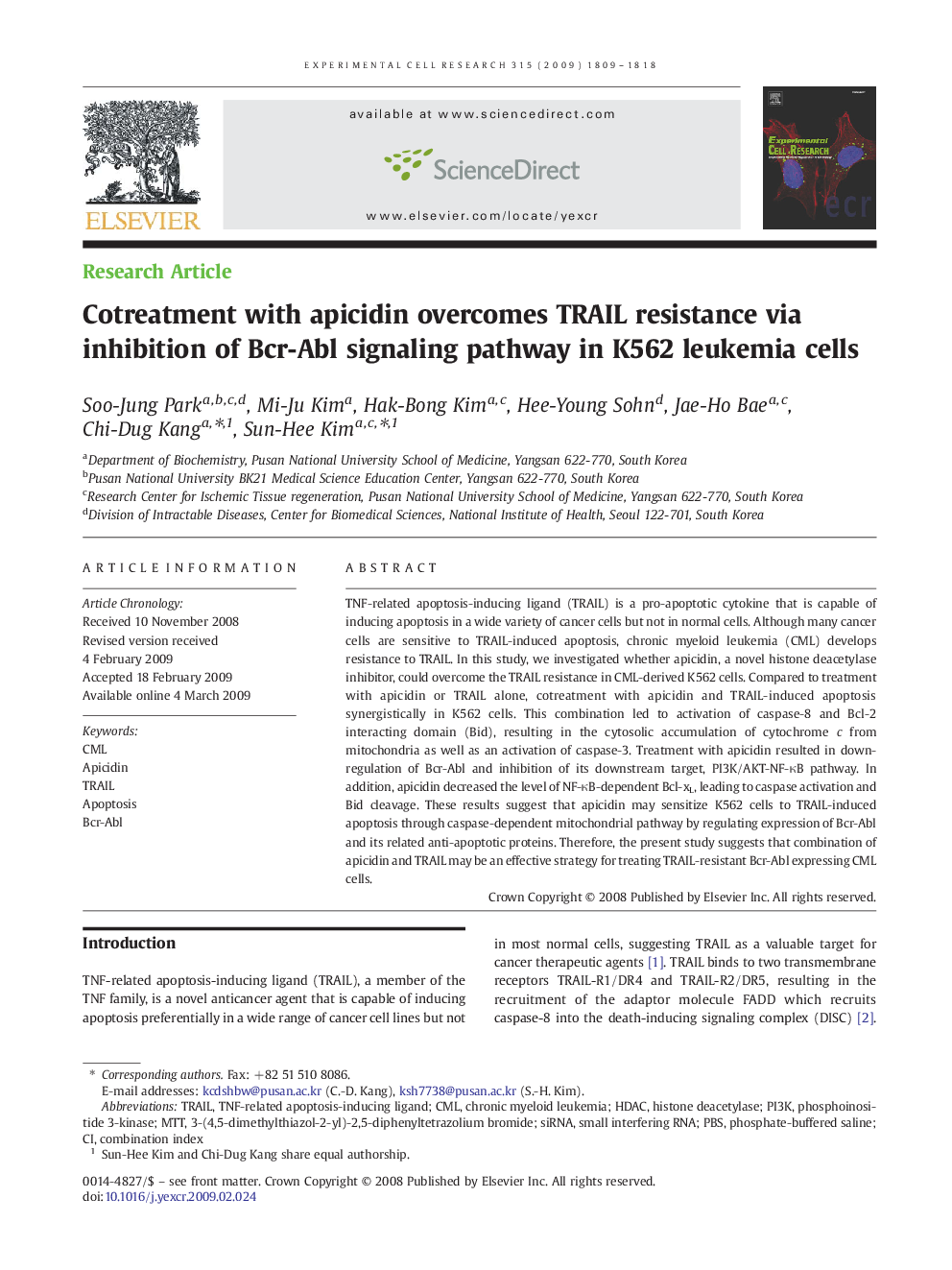| Article ID | Journal | Published Year | Pages | File Type |
|---|---|---|---|---|
| 2131573 | Experimental Cell Research | 2009 | 10 Pages |
TNF-related apoptosis-inducing ligand (TRAIL) is a pro-apoptotic cytokine that is capable of inducing apoptosis in a wide variety of cancer cells but not in normal cells. Although many cancer cells are sensitive to TRAIL-induced apoptosis, chronic myeloid leukemia (CML) develops resistance to TRAIL. In this study, we investigated whether apicidin, a novel histone deacetylase inhibitor, could overcome the TRAIL resistance in CML-derived K562 cells. Compared to treatment with apicidin or TRAIL alone, cotreatment with apicidin and TRAIL-induced apoptosis synergistically in K562 cells. This combination led to activation of caspase-8 and Bcl-2 interacting domain (Bid), resulting in the cytosolic accumulation of cytochrome c from mitochondria as well as an activation of caspase-3. Treatment with apicidin resulted in down-regulation of Bcr-Abl and inhibition of its downstream target, PI3K/AKT-NF-κB pathway. In addition, apicidin decreased the level of NF-κB-dependent Bcl-xL, leading to caspase activation and Bid cleavage. These results suggest that apicidin may sensitize K562 cells to TRAIL-induced apoptosis through caspase-dependent mitochondrial pathway by regulating expression of Bcr-Abl and its related anti-apoptotic proteins. Therefore, the present study suggests that combination of apicidin and TRAIL may be an effective strategy for treating TRAIL-resistant Bcr-Abl expressing CML cells.
